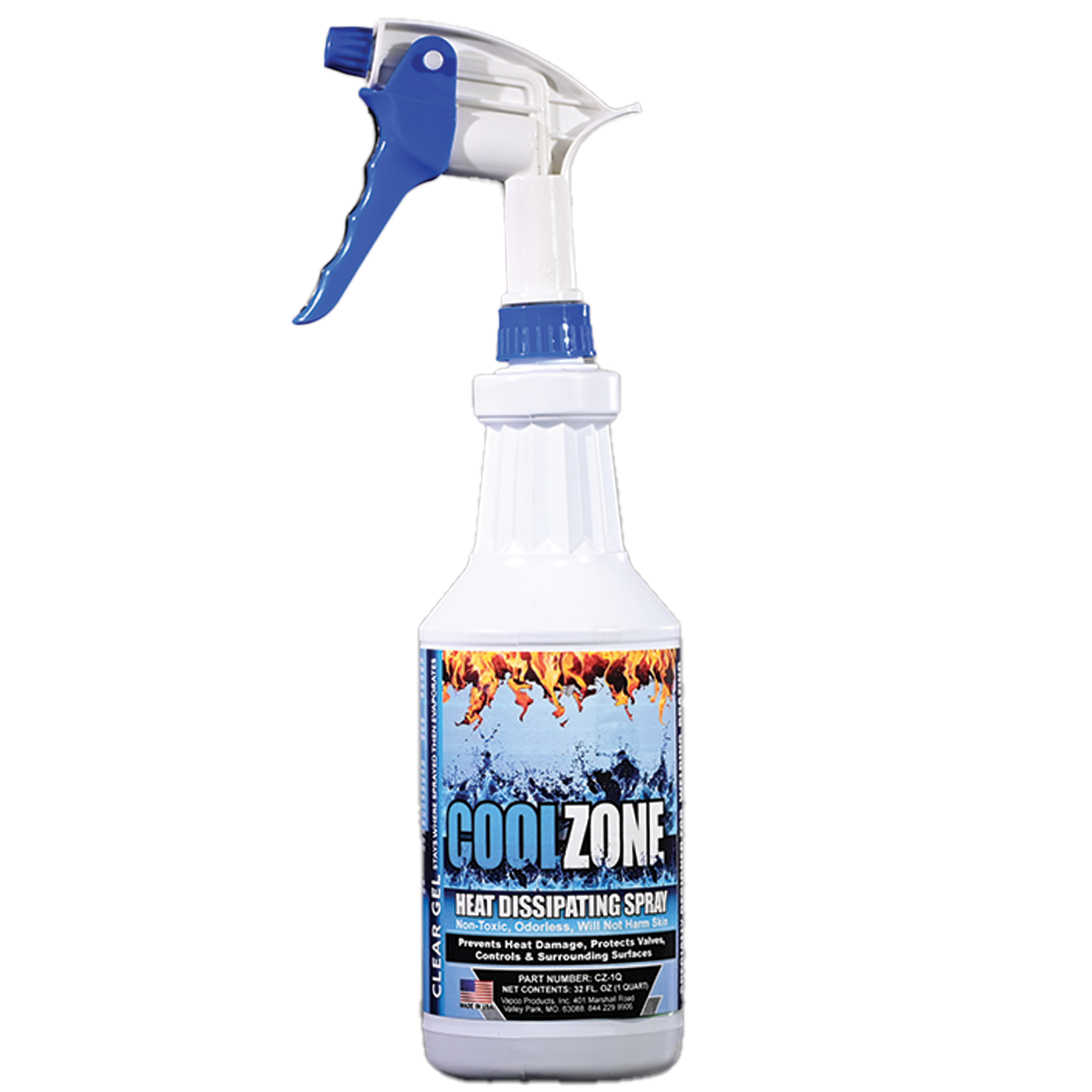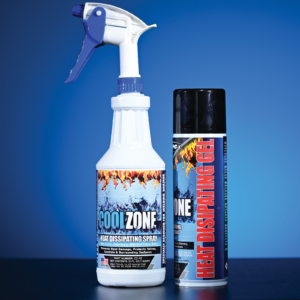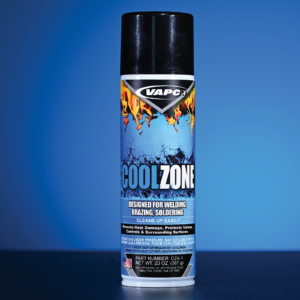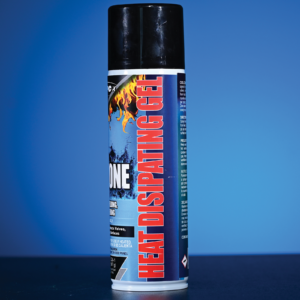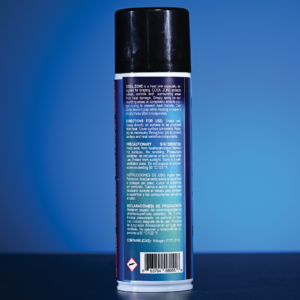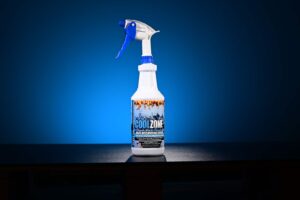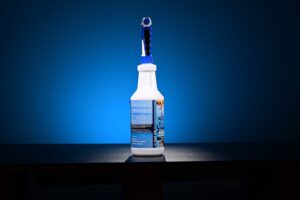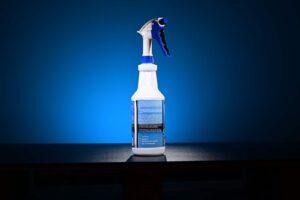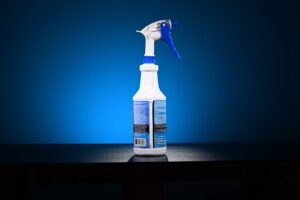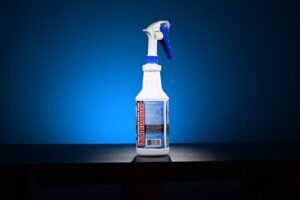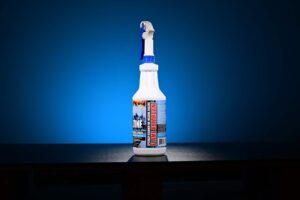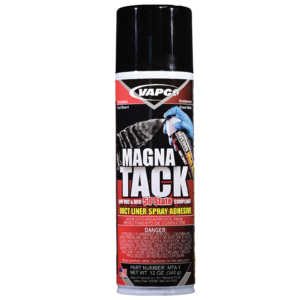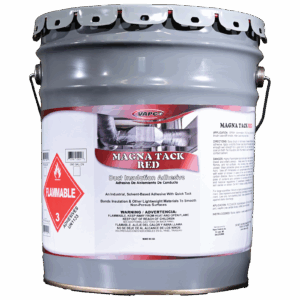COOL ZONE
Safeguard Your Components from Heat Damage
COOL ZONE is a specialized heat protection gel designed to shield delicate control fittings and materials from the harmful effects of brazing, soldering, and welding. Its clear, odorless, and non-staining formula ensures a mess-free application and eliminates the need for cleanup.
Key Features and Benefits:
- Prevents Heat Damage: Protects components and surrounding materials from excessive heat.
- Odorless and Non-Staining: Leaves no residue, ensuring a clean working environment.
- Skin-Safe: Safe for handling without causing irritation.
- Flame Retardant: Helps reduce the risk of fire to nearby materials.
- Heat-Resistant: Remains stable when exposed to high temperatures.
Ideal for:
- Protecting control fittings
- Shielding delicate materials
- Preventing heat damage to surrounding surfaces
- Reducing the risk of fire
COOL ZONE is an essential tool for professionals and DIY enthusiasts who require a reliable heat protection solution.Its versatility and effectiveness make it a valuable asset for various applications.
Part Number; Size
Safeguard Your Components from Heat Damage
- Shake Well: Ensure the gel is thoroughly mixed by shaking the container vigorously before use.
- Direct Application: Spray COOL ZONE directly onto the surfaces you want to protect from heat.
- Complete Coverage: Completely cover the entire surface to ensure maximum protection.
- Reapply as Needed: For extended protection or intense heat exposure, reapply COOL ZONE as necessary.
Contact Us
News and Updates
Subscribe on Youtube
Follow Us on Facebook
SDS - Liquid
⚠️ COOL ZONE SDS – DOWNLOAD
1. Identification & Supplier Details
| Product Name / Number |
**Cool Zone Aerosol** / CZA-1 |
| Recommended Use |
Flame Retardant |
| Supplier Name |
Vapco Products, Inc. |
| Supplier Address |
401 Marshall Road, Valley Park, Missouri 63088, United States |
| Emergency Phone Number |
**(800) 255-3924** |
2. Hazard Identification & Composition
2.1 GHS Classification
GHS classification in accordance with: OSHA (29 CFR 1910.1200, 2012)
– **Gases under pressure, compressed gas**
2.2 Hazard Statement
| Pictogram / Signal Word |
/ **Warning** |
| Hazard Statement (H280) |
Contains gas under pressure; **may explode if heated** |
| Precautionary Statements (P410+P403) |
Protect from sunlight. Store in a well-ventilated place. Do not expose to temperatures exceeding 50 °C/122 °F. |
2.3 Hazardous Components
| CHEMICAL NAME |
CAS NO. |
CONCENTRATION (WEIGHT) |
| Nitrogen |
7727-37-9 |
1% – 10% |
3. Physical & Chemical Properties
| Physical State / Appearance |
Liquid / Aerosol spray |
| Color / Odor |
Colorless / Bland odor |
| pH |
**10.2 – 11.2** |
| Boiling Point |
>212°F (100°C) |
| Flammability |
Not classified as a flammable aerosol |
| Solubility |
**Completely soluble in water** |
| Kinematic Viscosity |
32,500 cPs |
| Relative Density |
1.02 at 70°F |
| Vapor Pressure |
17.5 mmHg at 77°F (25°C) |
4. Stability & Reactivity
| Chemical Stability |
Stable under normal conditions of use. |
| Possibility of Hazardous Reactions |
None known. |
| Conditions to Avoid |
Incompatibilities (Strong oxidizers, alkalis, acids). |
| Hazardous Decomposition Products |
None known. |
5. Toxicological Information
| METRIC (HEALTH EFFECT) |
OBSERVATION |
| Skin Corrosion/Irritation |
Brief contact is not irritating. May cause irritation, dryness, and redness. |
| Serious Eye Damage/Irritation |
May cause mild irritation. |
| Inhalation Hazard |
May cause dizziness if inhaled directly or exposed to excessive amounts. |
| Carcinogenicity / Mutagenicity |
Not classified as carcinogenic or mutagenic. |
6. First-Aid Measures
6.1 Description of necessary first-aid measures
| EXPOSURE ROUTE |
FIRST-AID MEASURE |
| If Inhaled |
Remove person to fresh air. Keep at rest. Get medical advice/attention. |
| In case of Skin Contact |
Immediately drench affected area with water for at least 15 minutes. Remove contaminated clothing. |
| In case of Eye Contact |
Immediately rinse with water for at least 15 minutes. Remove contacts. Continue rinsing. |
| If Swallowed |
Rinse mouth. **DO NOT induce vomiting.** Obtain medical attention. |
7. Fire-Fighting & Accidental Release Measures
7.1 Fire-Fighting Instructions
Precautionary Fire Measures: Fight fire remotely due to the risk of explosion. Shut off all sources of ignition. Use water spray/fog for cooling exposed containers.
7.2 Spill Cleanup Measures
Eliminate all ignition sources. Ventilate the area. Stop the source of the release if safe to do so. Contain spills with dikes or absorbents. Transfer spilled material to a suitable container for disposal.
8. Handling, Storage & PPE
8.1 Precautions for Safe Handling
Do not handle until all safety precautions are read. Avoid contact with skin and eyes. Do not breathe gas/mist/vapors. Do not pierce or burn pressurized container.
8.2 Storage Conditions
Store in a dry, cool, well-ventilated place away from ignition sources. Protect from sunlight. **Do not expose to temperatures exceeding 50°C/122°F.**
8.3 Personal Protective Equipment (PPE)
| PPE TYPE |
REQUIREMENT |
| Eye/Face Protection |
Chemical safety goggles. |
| Skin/Body Protection |
Wear protective gloves and suitable clothing. |
| Respiratory Protection |
Use a NIOSH-approved Self-Containing Breathing Apparatus whenever exposure may exceed established OELs. |
9. Transport & Regulatory Information
9.1 Transport Classification (DOT, IMDG, IATA)
| REGULATOR |
UN NUMBER |
CLASS |
PROPER SHIPPING NAME |
| DOT (US) |
UN1950 |
2.2 |
Aerosols, non-flammable |
| IMDG |
UN1950 |
2.2 |
Aerosols, non-flammable |
| IATA |
UN1950 |
2.2 |
Aerosols, non-flammable |
9.2 US Regulatory Compliance
**TSCA:** All components listed on US EPA TSCA public inventory (Nitrogen, CAS 7727-37-9).
**RTK:** Listed on Massachusetts, New Jersey, and Pennsylvania Right-To-Know components (Nitrogen).
10. Disposal & Ecological Information
10.1 Disposal Recommendations
Dispose of contents/container in accordance with local, regional, national, and international regulations. Do not pierce or burn, even after use. This material is hazardous waste per federal regulations (40CFR 261).
10.2 Ecological Summary
Product components are **not biodegradable**. Expected to be **mobile in soil**.
11. Disclaimer & Preparation Information
To the best of our knowledge, information contained herein is accurate. However, there is no assumption of liability for the accuracy or completeness of the information contained herein. Final determination of suitability of any material is the sole responsibility of the user. The information contained in this SDS was obtained from current and reliable sources; however, the data is provided without warranty, expressed or implied, regarding its correctness or accuracy.
| ITEM |
DETAILS / CLASSIFICATION |
| Prepared By |
Jessica Wilson |
| Date Prepared |
3-11-2025 |
